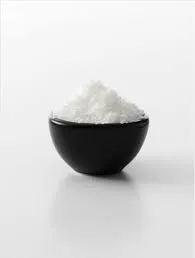- Afrikaans
- Albanian
- Amharic
- Arabic
- Armenian
- Azerbaijani
- Basque
- Belarusian
- Bengali
- Bosnian
- Bulgarian
- Catalan
- Cebuano
- Corsican
- Croatian
- Czech
- Danish
- Dutch
- English
- Esperanto
- Estonian
- Finnish
- French
- Frisian
- Galician
- Georgian
- German
- Greek
- Gujarati
- Haitian Creole
- hausa
- hawaiian
- Hebrew
- Hindi
- Miao
- Hungarian
- Icelandic
- igbo
- Indonesian
- irish
- Italian
- Japanese
- Javanese
- Kannada
- kazakh
- Khmer
- Rwandese
- Korean
- Kurdish
- Kyrgyz
- Lao
- Latin
- Latvian
- Lithuanian
- Luxembourgish
- Macedonian
- Malgashi
- Malay
- Malayalam
- Maltese
- Maori
- Marathi
- Mongolian
- Myanmar
- Nepali
- Norwegian
- Norwegian
- Occitan
- Pashto
- Persian
- Polish
- Portuguese
- Punjabi
- Romanian
- Russian
- Samoan
- Scottish Gaelic
- Serbian
- Sesotho
- Shona
- Sindhi
- Sinhala
- Slovak
- Slovenian
- Somali
- Spanish
- Sundanese
- Swahili
- Swedish
- Tagalog
- Tajik
- Tamil
- Tatar
- Telugu
- Thai
- Turkish
- Turkmen
- Ukrainian
- Urdu
- Uighur
- Uzbek
- Vietnamese
- Welsh
- Bantu
- Yiddish
- Yoruba
- Zulu
Nov . 06, 2024 05:14 Back to list
Veterinary Dosage Guidelines for Albendazole in Animal Health Management
Albendazole Veterinary Dosage A Comprehensive Guide
Albendazole is a broad-spectrum anthelmintic agent widely used in veterinary medicine for the treatment and prevention of a variety of parasitic infections in livestock. This benzimidazole drug is effective against nematodes and certain cestodes, making it a valuable tool for veterinarians and farmers alike. Understanding the appropriate dosages and administration methods for albendazole is crucial for maximizing its efficacy and ensuring the health and wellbeing of animals.
Mechanism of Action
Albendazole works by disrupting the energy metabolism of parasites. It binds to the β-tubulin protein in their cells, inhibiting microtubule formation. This action leads to the disruption of cellular processes, ultimately resulting in the immobilization and death of the parasites. Because it acts selectively on parasitic cells while having a minimal effect on the host, albendazole is considered safe when used correctly.
Dosage Guidelines
The dosage of albendazole can vary based on the species of animal being treated, the type of parasite, and the severity of the infection
. It is important to follow veterinary recommendations closely, as improper dosing can lead to ineffective treatment or adverse effects.1. Cattle The typical dosage for albendazole in cattle is about 5 to 10 mg per kg of body weight, administered as a single dose. For controlling gastrointestinal nematodes and lungworms, treatment may need to be repeated every 4 to 6 months or as directed by a veterinarian.
2. Sheep and Goats For sheep and goats, the recommended dosage is generally around 5 mg per kg of body weight. This dosage is effective for treating common parasites such as Haemonchus spp. and other gastrointestinal worms. It is essential to monitor these animals closely after treatment, particularly in the case of pregnant ewes and does, as they can be more sensitive to medications.
3. Swine When using albendazole for pigs, the dose is typically around 10 mg per kg of body weight, prescribed for the treatment of certain gastrointestinal parasites. Swine should be treated with caution, particularly if they are intended for market soon after administration, to ensure that withdrawal periods are respected.
albendazole veterinary dosage

4. Horses Albendazole is less commonly used in equines, but when indicated, the dosage is approximately 5 mg per kg of body weight, administered orally. It is vital to ensure that the specific formulation is appropriate for horses, as some veterinary formulations may be toxic to them.
Administration Methods
Albendazole is typically available in several forms, including oral paste, granules, or tablets. When administering albendazole
- Oral Dosage For most animals, albendazole is given orally. It can be mixed with feed or administered as a bolus or drench. - Withholding Feed In some cases, withholding feed for a few hours prior to treatment can enhance absorption and efficacy. - Hydration Ensure that animals are adequately hydrated, as this facilitates the effectiveness of the medication.
Safety and Side Effects
Albendazole is generally well-tolerated in most animal species. However, as with any medication, it can have side effects. Some animals may experience mild gastrointestinal upset, such as diarrhea or vomiting. It is essential to observe treated animals for any unusual reactions and to consult a veterinarian if adverse effects are noted.
Conclusion
Albendazole serves as a powerful ally in the fight against parasitic infections in veterinary medicine. By adhering to recommended dosages and administration practices, pet owners and livestock producers can play a significant role in maintaining the health of their animals. Regular veterinary check-ups and fecal examinations can guide timely treatments and help prevent the development of resistance in parasite populations. As always, working closely with a veterinarian ensures the best outcomes for animal health and productivity.
-
Guide to Oxytetracycline Injection
NewsMar.27,2025
-
Guide to Colistin Sulphate
NewsMar.27,2025
-
Gentamicin Sulfate: Uses, Price, And Key Information
NewsMar.27,2025
-
Enrofloxacin Injection: Uses, Price, And Supplier Information
NewsMar.27,2025
-
Dexamethasone Sodium Phosphate Injection: Uses, Price, And Key Information
NewsMar.27,2025
-
Albendazole Tablet: Uses, Dosage, Cost, And Key Information
NewsMar.27,2025













